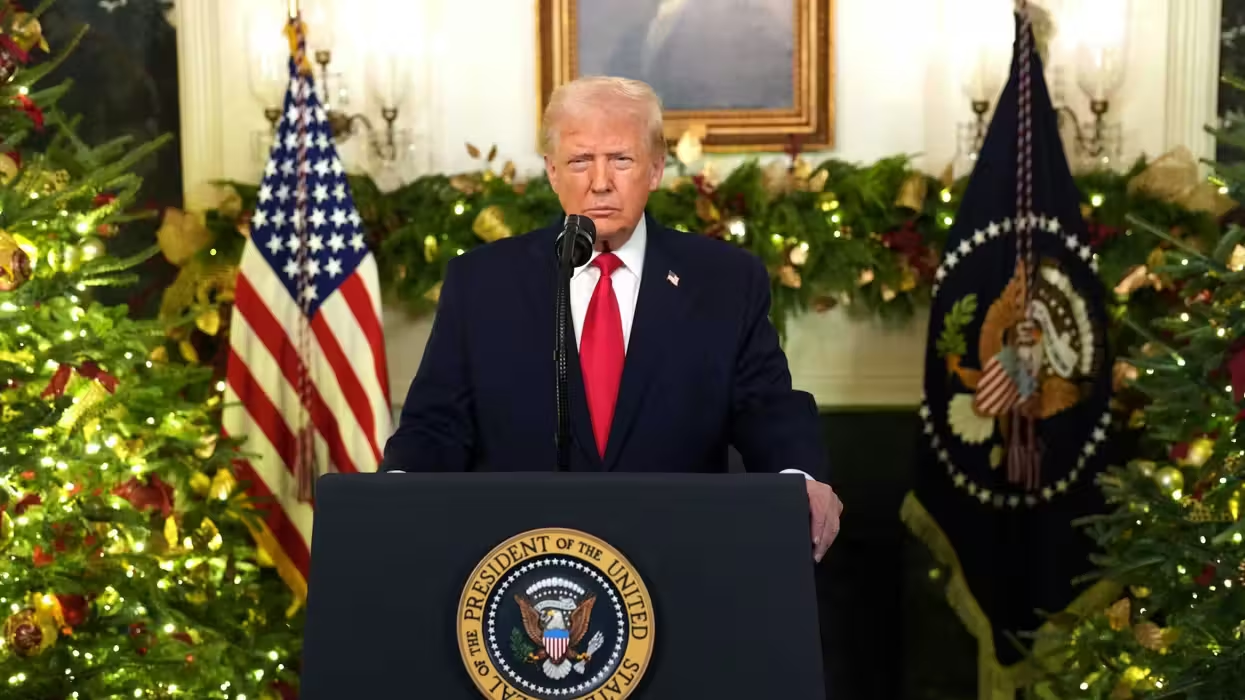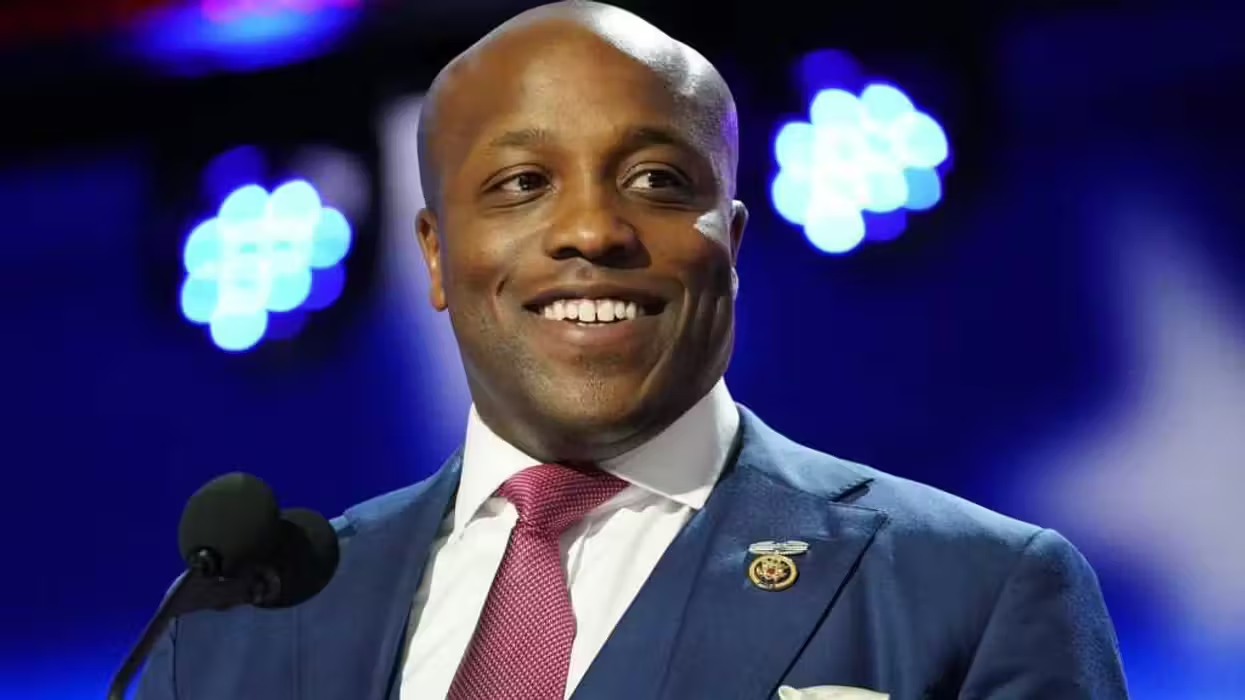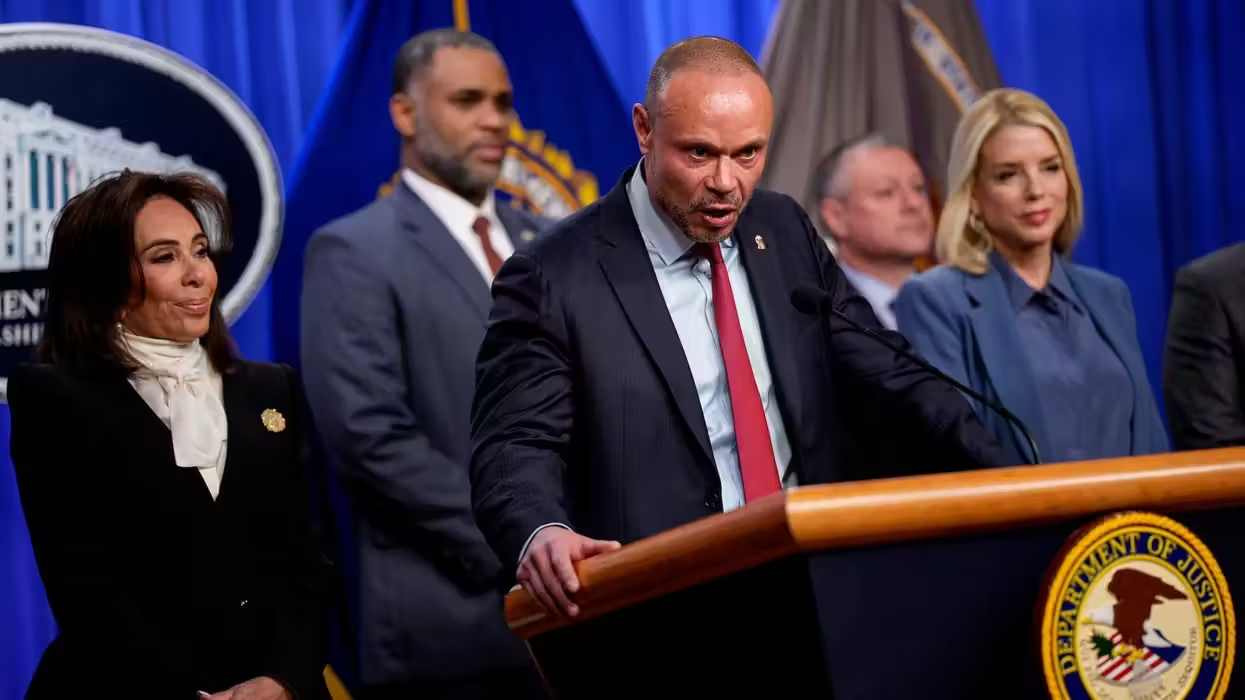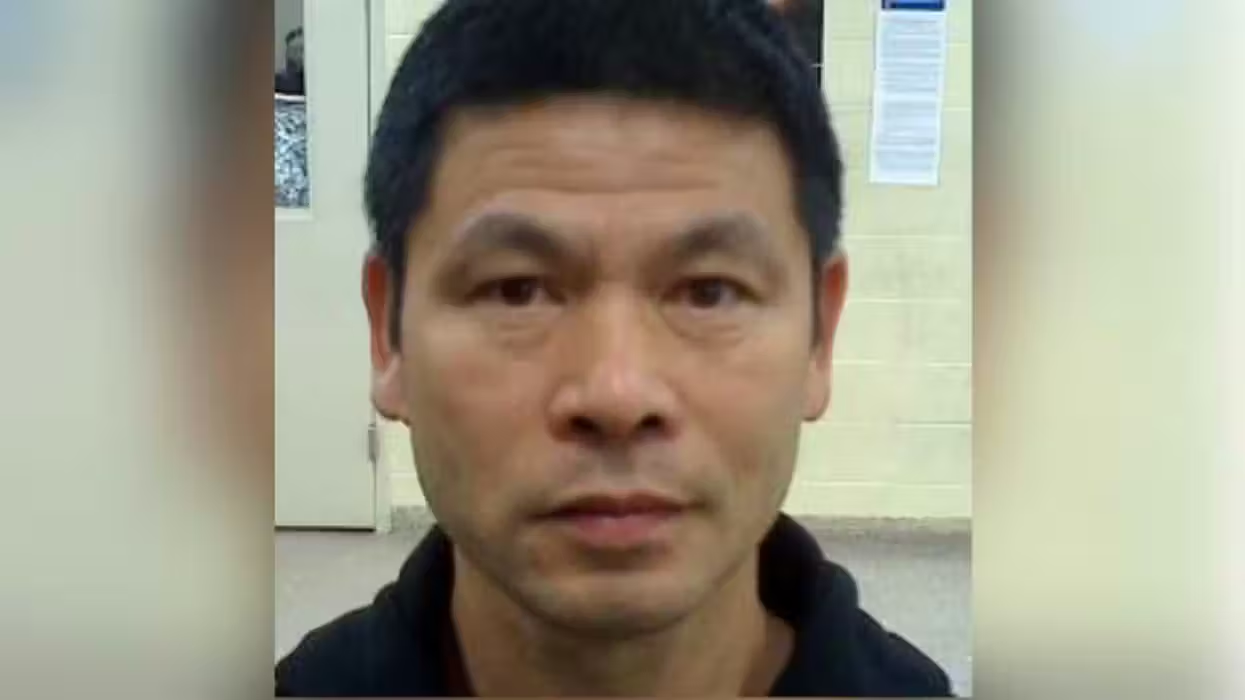 FILE - In this July 25, 2011 file photo, Texas Attorney General Greg Abbott talks with the media as he leaves the Tom Green County Courthouse, in San Angelo, Texas. Credit: AP
FILE - In this July 25, 2011 file photo, Texas Attorney General Greg Abbott talks with the media as he leaves the Tom Green County Courthouse, in San Angelo, Texas. Credit: AP
Texas Attorney General Greg Abbott on Tuesday vowed to use every means necessary to fight the "dangerous" United Nations global arms treaty that was overwhelmingly approved by the General Assembly on Tuesday.
Speaking to a group of reporters on a conference call, Abbott warned that the arms treaty "raises a red warning flag to anyone concerned about the liberties guaranteed to all Americans under the United States Constitution."
"That flag was raised when the United States agreed to the passage of the United Nations Arms Trade Treaty," he added. "This treaty is a dangerous threat, not only to Second Amendment rights under the United States Constitution, but also erodes our constitutional liberties by placing more of the control of those liberties in the hands of bureaucrats at the United Nations."
Abbott said he sent a letter to the White House on Tuesday urging the Obama administration to take the appropriate action. However, the Texas attorney general expressed doubt that the administration would actually oppose the implementation of the treaty in the U.S. because it announced that it was pleased with the treaty's passage.
Additionally, Abbott said Secretary of State John Kerry insinuated the arms treaty is implementable in the United States. Kerry on Tuesday applauded the "strong, effective and implementable Arms Trade Treaty that can strengthen global security while protecting the sovereign right of states to conduct legitimate arms trade."
Warning that the global arms agreement could possibly be ratified and imposed on Americans, Abbott said the treaty would only need to be accepted by President Barack Obama and then ratified by the Democrat-controlled Senate with a two-thirds vote. "I don't think the Obama administration would've voted for this, would be coming up this day so strongly in support of it if he thought he didn't have a chance of getting the U.S. Senate to pass it, or ratify it," he said.
 Delegates to the United Nations General Assembly April 2, 2013 after the passage of the first UN treaty regulating the international arms trade. The UN General Assembly on Tuesday adopted the first-ever treaty to regulate the $80-billion-a-year conventional arms trade. The assembly voted 154-3 for a resolution that will open the treaty for signature from June. Syria, North Korea and Iran -- which had blocked the treaty last week -- voted against it. Russia was among the 23 abstentions. Credit: AFP/Getty Images
Delegates to the United Nations General Assembly April 2, 2013 after the passage of the first UN treaty regulating the international arms trade. The UN General Assembly on Tuesday adopted the first-ever treaty to regulate the $80-billion-a-year conventional arms trade. The assembly voted 154-3 for a resolution that will open the treaty for signature from June. Syria, North Korea and Iran -- which had blocked the treaty last week -- voted against it. Russia was among the 23 abstentions. Credit: AFP/Getty Images
Should the Senate actually ratify the U.N. Arm Trade Treaty, Abbott said he would be forced to take swift and certain legal action to "shut down this unconstitutional treaty."
In addition to regulating military weaponry like battle tanks and armored combat vehicles, Abbott argued the treaty also looks to regulate small arms and light weapons, among various other types of weapons.
"It also gives power to the United Nations to impose firearm restrictions that will be run by international bureaucrats, who will not be accountable to the people of the United States," he warned. "The attempt to use this U.N. platform to establish a registry of weapons in the United States also poses a problem."
He went on: "We cannot accept a president or the possibility of a Senate that are going to seize our constitutional guarantees to international authorities… We fought and we won a war to protect us from rulers in a distant land trying to limit our rights. We have circled back now to a point where it seems like our federal government is trying to cede our authority away."
The U.N. General Assembly approved the arms treaty by a vote of 154 to 3 with 23 abstentions. Never before has there been an international treaty regulating the global arms trade.
The treaty is likely to face stiff resistance from conservatives in the U.S. Senate, where it needs the approval of two-thirds of the 100 lawmakers to win ratification.
Supporters of the treaty argue it will not control the domestic use of weapons in any country, however, it will require nations that ratify it to establish national regulations to control the transfer of conventional arms and components and to regulate arms brokers. It covers battle tanks, armored combat vehicles, large-caliber artillery systems, combat aircraft, attack helicopters, warships, missiles and missile launchers, and small arms and light weapons.
The Associated Press contributed to this report.

 FILE - In this July 25, 2011 file photo, Texas Attorney General Greg Abbott talks with the media as he leaves the Tom Green County Courthouse, in San Angelo, Texas. Credit: AP
FILE - In this July 25, 2011 file photo, Texas Attorney General Greg Abbott talks with the media as he leaves the Tom Green County Courthouse, in San Angelo, Texas. Credit: AP






